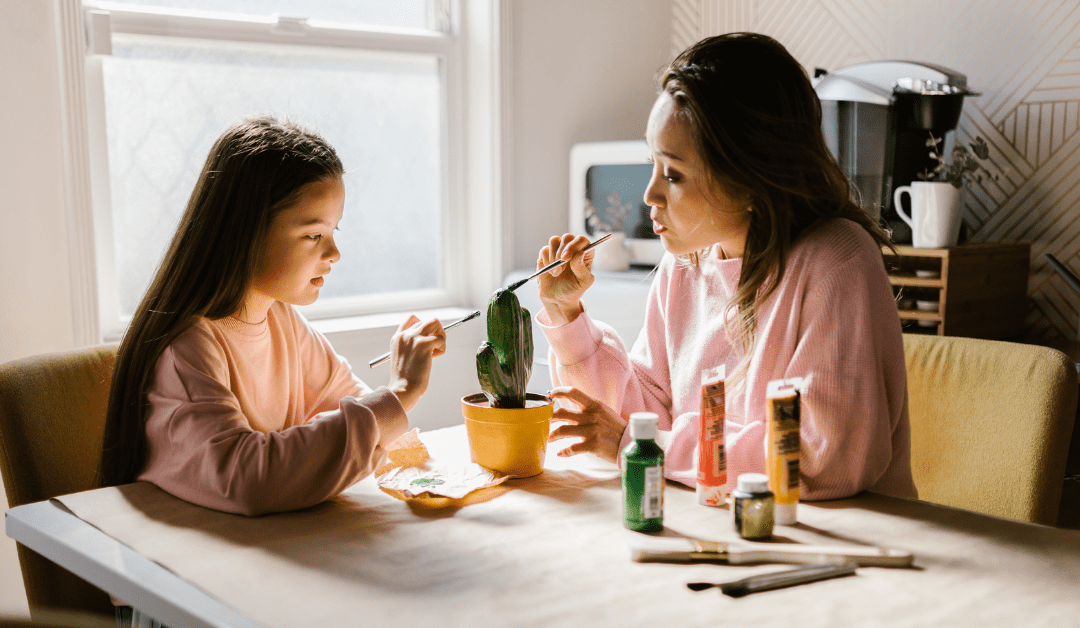Having and raising a family is one of life’s purest joys, and of course, we’d love nothing more than being as close to our children as possible. But getting them to open up is not as easy as it sounds.
Some kids may be chatterboxes who, from the second they open their eyes, tell you every little thought that’s passing through their minds. But some kids are the complete opposite. Reserved, quiet and keep their thoughts relatively quiet.
A conversation after school may look something like this:
You: Hi honey, how was school today?
Child: Fine.
You: Okay… did you learn anything exciting?
Child: Not really.
You: Oh alright. What did you do during recess?
Child: Nothing much.
If your child responds this way, you’ve probably wondered how on earth you can get them to open up and let you inside their little minds every once in a while. Well, it doesn’t just happen. If your child is not open by nature, you’re going to need to work at it.
But look. There are many reasons why they may be quiet. They could be stressed, they could be hiding something, or they could just be an introverted little human. Either way, if getting them to open up to you is important, as mentioned above, you’re going to have to put in some effort.
Here are some methods you can try:
Move
Some kids don’t enjoy having a face-to-face conversation. In fact, many adults don’t enjoy it either. Any conversation that feels like a job interview can instantly make a person feel anxious.
Walks and car rides are a great way to get your child to open up, as it will feel more natural.
Ask open-ended questions
If you’re asking “yes” and “no” questions (for example: Did you enjoy school today?), then you can expect one word answers. Ask questions that require a longer answer, like: “What did you and Sally talk about today?” This should hopefully get them to spill a bit more details about their day, which you can then capitalize on to keep the conversation going.
Validate their feelings
In troubled moments, let them know that you understand how they feel. If they never feel like you hear and understand them, they may be less willing to open up to you. Also avoid sarcasm.
Making it a safe space at all times is SO important.
Tell childhood stories
If you’re struggling to get anything out of them, tell them a story of your own. For example, if you’re asking them what they did at recess and they say, “Nothing much”, follow with a story about an interesting recess you once had.
This might encourage them to tell you their own story.
Have patience
It may take a while for them to open up to you. Have patience and keep trying. They may need to process what they’re feeling before they decide to share. They may not be doing it intentionally – it may just not be the right time.
Undivided attention
Put all screens and distractions away to let them know they have your full attention. Kids may refrain from opening up to you if they think that what they’re saying won’t be heard properly.
Your undivided attention will go a long way.
Positivity
Lastly, the importance of positivity cannot be stressed enough. You’re creating a safe space, remember? It’s important that you encourage them with positive affirmations to make them more comfortable. Things like “I’m so happy to see you!”, “Wow, you worked hard today” and “That was very thoughtful of you.” Make them feel as grounded and safe as you possibly can.
It’s hard for kids to open up if they don’t feel safe.
Parenting is a difficult job in itself, and if you have to utilize methods in order to hear what’s going on inside your child’s mind, it can make it even more draining.
But keep at it. An introverted child can be more extroverted in the right setting or moment. Keep working at it, help them feel as safe as possible and do your best every day to grow your relationship stronger and stronger.
Sometimes that’s easier said than done. If you’re interested in working with a professional licensed Psychologist in California, schedule a consultation with Dr. Bernecker today
Article Sources:
https://www.psychedmommy.com/blog/good-enough-mother
https://www.firstfiveyears.org.au/lifestyle/coping-with-parental-burnout-and-stress
https://www.todaysparent.com/family/parenting/good-enough-parenting/
https://www.seleni.org/advice-support/2018/3/14/the-gift-of-the-good-enough-mother
Winnicott, D. W. (1965) The maturational process and the facilitating environment: Studies in the theory of emotional development. New York: International University Press

